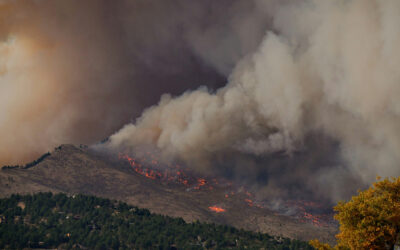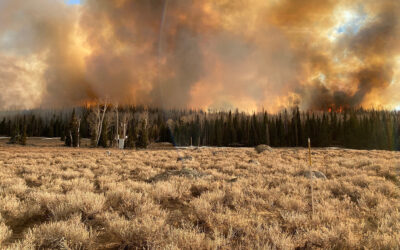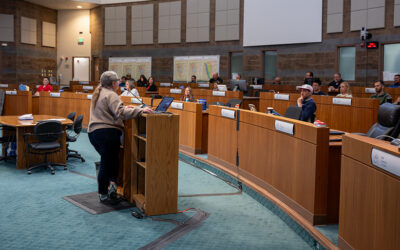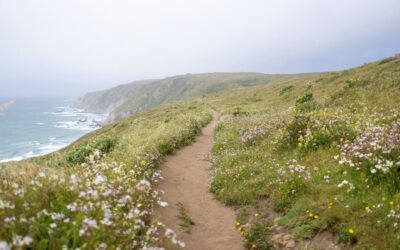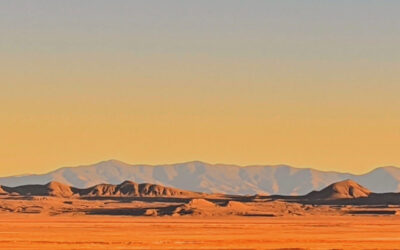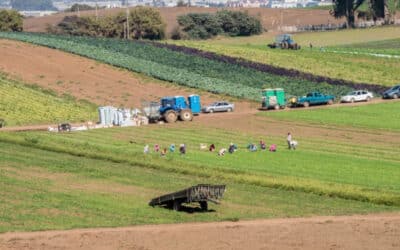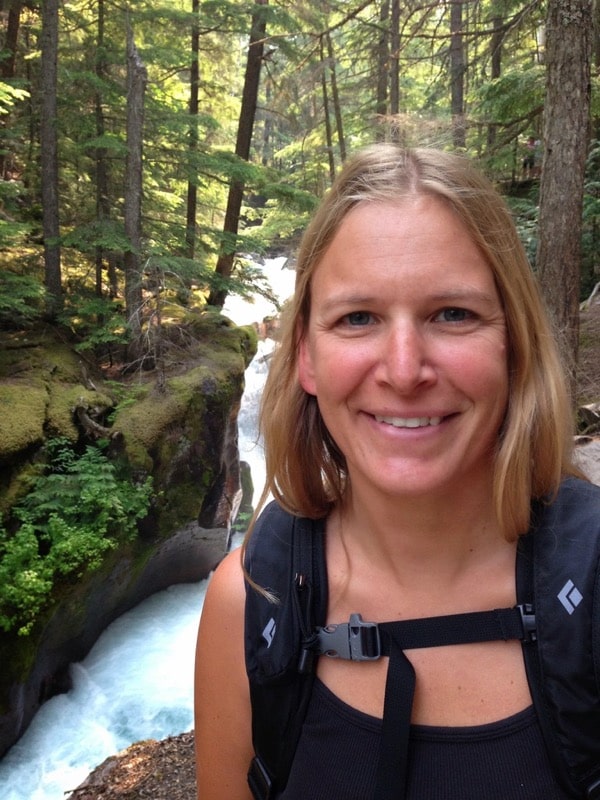While fires engulfed large swaths of southern California in early January, destroying more than 16,000 structures, taking at least 29 lives, and choking the air with smoke, a new study about weather whiplash was released. Co-authored by DRI’s Christine Albano, the research examined how a warming climate is creating an atmosphere more prone to extreme weather. Now, Albano and her co-authors have released a new report that applies the knowledge gained from January’s study to the recent fires, analyzing the broader climatic context that contributed to the unprecedented infernos.
Floods, Droughts, Then Fires: Hydroclimate Whiplash is Speeding up Globally
DRI’s Christine Albano co-authored a new study that examines how a warming climate is creating an atmosphere more prone to extreme weather. This “hydroclimate whiplash” is evident in California’s recent weather, with winters filled with repeated atmospheric river storms driving the plant growth that the dry summers then parched, providing plentiful fuel for explosive wildfires.
What We Know About Wildfire Risk and Prevention
DRI scientists conduct a wide range of research on wildfire related topics to help policymakers, fire managers, and community members navigate challenges to public safety and health. In this Q&A, a selection of our scientists answer some of the most pressing questions about the environmental conditions that lead to the most devastating blazes and offer previews into some of their most relevant research.
DRI Scientists Create Guidance to Help Emergency Managers Prepare for Weather Hazards of the Future
DRI scientists partnered with the U.S. Geological Survey to produce a guidance document for incorporating publicly available data on historical and projected extreme weather events to aid with emergency planning exercises. The report, funded by the California Department of Water Resources, is available on DRI’s website.
Groundwater is Key to Protecting Global Ecosystems
New research identifies ecosystems around the world that could be threatened by declining groundwater levels. The research, published July 17 in Nature, is the first time that groundwater-dependent ecosystems have been mapped on a global scale. Led by scientists from The Nature Conservancy and DRI, the global effort brought researchers together from universities, non-profit organizations, and institutions from seven countries.
DRI’s Christine Albano Co-authors Groundbreaking New Research in Groundwater’s Role in Ecosystem Sustainability
A new study published in Nature Water used satellite data spanning 38 years to examine how groundwater-dependent ecosystems (such as wetlands, meadows, and springs) in California respond to fluctuations in groundwater levels. The research can help shed light on how water management practices can best account for ecosystem needs in addition to those of human society.
New study shows robust increases in atmospheric thirst across much of U.S. during past 40 years
A new study showed substantial increases in atmospheric thirst across much of the Western U.S. during the past 40 years, with the largest and most robust increases in an area centered around the Rio Grande and Lower Colorado rivers.
New DRI Internship Program Focuses on Mentorship for Inclusion in STEM
Fourteen students from Nevada’s two-year colleges are building career skills in exciting new directions. The students are conducting hands-on research alongside DRI scientists in Reno and Las Vegas through DRI’s Research Immersion Internship Program.
New donor-powered research underway to address climate adaptation, water resources, and more
The DRI Foundation has just awarded the next round of seed grants to six teams of researchers through the Innovation Research Program (IRP). The IRP provides the start-up funding DRI scientists need to test new ideas and produce initial data, which will help them...
Q&A with AGU presenter Christine Albano
Christine Albano is a hydrologist and graduate student pursuing her Ph.D. She'll be attending AGU for the first time this year. DRI: In a couple of sentences, what is the ‘plain English’ summary of what you are presenting at AGU? Christine Albano: Through our...
